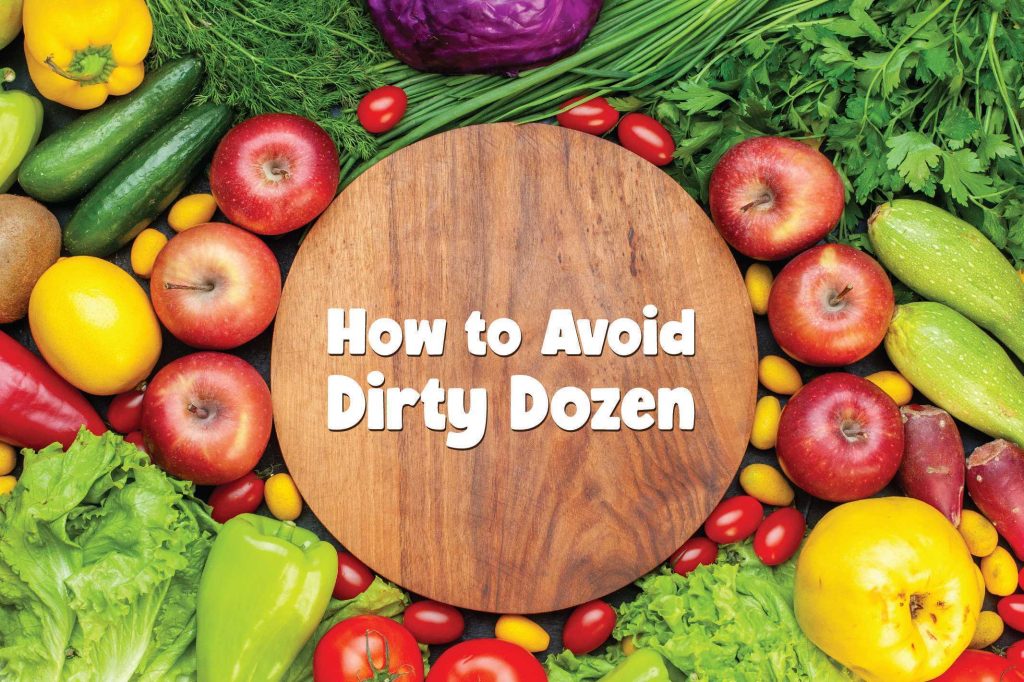
In an era where health and well-being have become paramount, understanding the potential hazards lurking in our food supply is crucial. The annual release of the “Dirty Dozen” list by the Environmental Working Group (EWG) sheds light on the fruits and vegetables that are most likely to be contaminated with pesticides. This list includes vegetables like blueberries, kale and nectarines. As we delve into the specifics of the 2023 list from an Indian perspective, let’s explore how to enjoy these foods safely and prioritize our health without compromising on nutrition.
India’s diverse climate and agroecological regions offer a vast array of vegetables integral to traditional Indian cuisine. The nation’s agricultural landscape is a tapestry of flavours, colours, and nutritional value, with native vegetables playing a pivotal role. From the robust bitterness of bitter gourd (karela) to the earthy delights of bottle gourd (lauki), these vegetables have been a part of Indian culinary heritage for generations.
While the ‘Dirty Dozen’ list is primarily formulated based on data from the United States, the concerns surrounding pesticide residues are universal. Some native Indian vegetables align with the findings due to similar cultivation practices. Here’s a glimpse of how these beloved vegetables and others India fare:
The ‘Dirty Dozen’ – Unveiling the Culprits:
- Potatoes: Potatoes are one of the most popular tubers and an essential part of everyone’s diet. However, potatoes can contain various chemicals.
- Bitter Gourd (Karela): Known for its distinct flavour and health benefits, bitter gourd can contain pesticide residues due to its porous skin.
- Bottle Gourd (Lauki): The smooth skin of bottle gourd can trap pesticides. Bottle gourds are often injected with a hormone, oxytocin, in order to increase growth. Oxytocin, when consumed over a long period of time, could have adverse health effects.
- Brinjal (Eggplant): Brinjal’s susceptibility to pests often leads to pesticide applications. Washing and cooking can only to some extent minimize pesticide residues.
- Cauliflower: This cruciferous gem can be exposed to pesticides during cultivation. Studies suggest that often 25 rounds of chemical pesticides can be sprayed on crucifers and traces can remain for over 45 days after harvest
- Okra (Bhendi): Okra’s tender exterior can attract pesticide residues. Opting for organically grown okra can be safer choices.
- Cabbage: The layered structure of cabbage leaves can retain pesticides. Removing outer layers and choosing organically grown cabbage are prudent measures. Cabbage attracts a lot of insects like aphids etc and chemical pesticides are extensively used in their cultivation.
- Tomatoes: While native to the Americas, tomatoes have become integral to Indian cuisine. Opting for organic tomatoes can help mitigate pesticide risks.
- Apples: Often consumed with their skin, apples are infamous for pesticide contamination. The skin is often coated with a synthetic wax, done to enhance shelf life and make the apple appear shiny. Consider opting for organic varieties to reduce your exposure. Recent studies have suggested that pesticide use is rampant in some apple valleys in India, which can result in severe soil contamination
- Grapes, especially imported ones, can contain high levels of pesticides. Choose organic grapes and wash them meticulously.
- Spinach: Leafy greens like spinach often retain pesticide residues. Thorough washing and opting for organic varieties can help mitigate exposure.
- Bell Peppers: These colourful vegetables are vulnerable to pesticide contamination. Peeling, cooking, or selecting organic bell peppers can reduce risks.
What Steps Can You Take To Prevent Pesticide Exposure:
The Indian agricultural landscape is diverse, and understanding local farming practices is essential. Many traditional Indian fruits and vegetables have their counterparts on the list due to common pesticide application methods. To minimize risks:
1. Choose Organic: Opt for certified organic produce whenever feasible. Organic farming in India is gaining momentum, offering safer alternatives. Happy Harvest Farms is one of the pioneers of organic farming in India and we work with a wide network of verified organic farms and farmers. When you order fruits and vegetables from trusted brands like Happy Harvest Farms, you can be sure that they have been grown without chemicals pesticides and chemical fertilisers.
2. Support Farmers: Demand is directly commensurate with supply. If you support organic farmers, the demand will increase, economies of scale will apply and consequently price of organic produce will come down. .
3. Support Local: Purchase from local farmers’ markets or directly from farmers. This can offer insight into farming practices and reduce the chances of contamination.
Amidst growing health concerns, staying informed about pesticide exposure is paramount. The ‘Dirty Dozen’ list serves as a reminder that conscious choices about the produce we consume can have a significant impact on our well-being. By adopting safer consumption practices and supporting organic farming, we can navigate the challenges posed by pesticide residues in India’s fruits and vegetables while ensuring our health remains a top priority.